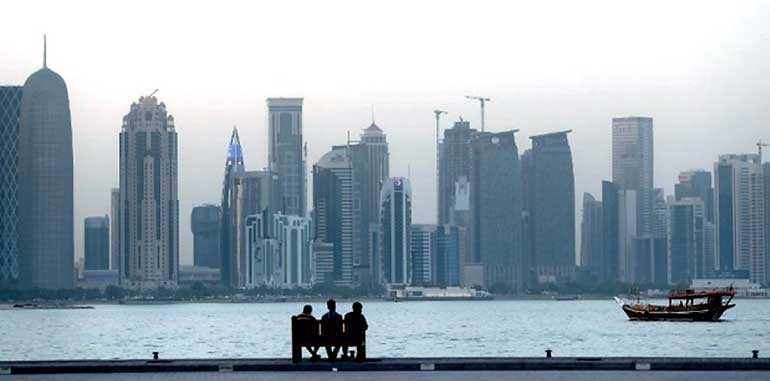Tuesday Feb 24, 2026
Tuesday Feb 24, 2026
Wednesday, 13 June 2018 00:05 - - {{hitsCtrl.values.hits}}

LONDON (Reuters): The government of Qatar took the United Arab Emirates to the United Nations’ International Court of Justice (ICJ) on Monday, accusing it of human rights violations as a result of a boycott enacted last year.
The UAE, Saudi Arabia, Bahrain and Egypt imposed a boycott on Qatar in June 2017, severing diplomatic and transport ties with the tiny, rich state, accusing it of supporting terrorism.
Doha denies that and says the pressure is aimed at stripping it of its sovereignty.
“As set forth in detail in Qatar’s application to the International Court, the UAE led these actions, which have had a devastating effect on the human rights of Qataris and residents of Qatar,” the government said in a statement.
UAE’s minister of state for foreign affairs, Anwar Gargash, in a post on Twitter, dismissed the claims as another of Doha’s “lies.”
The Qatari government said the UAE enacted a series of measures that discriminate against Qataris, including expelling them from the UAE, prohibiting them from entering or passing through the UAE, ordering UAE nationals to leave Qatar, and closing UAE airspace and seaports to Qatar.
Qatar said it believed the actions were in violation of the International Convention on the Elimination of All Forms of Racial Discrimination (CERD) - including discrimination on the basis of nationality - of which the UAE and Qatar are both signatories.
Saudi Arabia, Bahrain and Egypt are not signatories of the CERD convention.
The complaint bit.ly/2sNbA72, filed by Qatar late on Monday, accuses the United Arab Emirates of discriminating against Qataris in UAE by limiting their freedom of speech and movement, inciting hatred against them, shutting down local offices of Qatar’s state-funded Al Jazeera television station and blocking transmission of Qatari media outlets. Qatar is asking the court to order the UAE to take steps to comply with its obligations under the CERD, ceasing and revoking the measures and restoring the rights of Qataris.
It also requested that the UAE make reparations, including compensation, but provided no details of the amount it might be seeking.
The court’s registry confirmed late on Monday it received the complaint, the first step in a dispute which the court may hear. The court typically solicits opinions from both sides as to whether it has jurisdiction before considering the merits of a case, a process that often takes years.